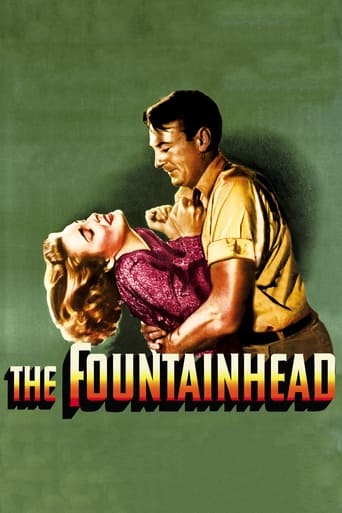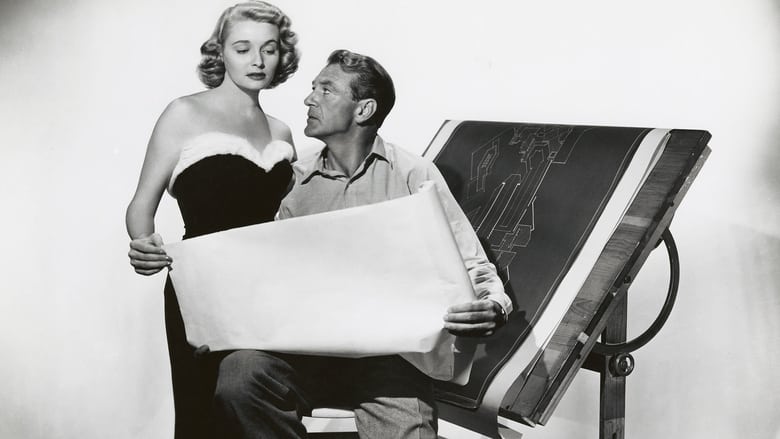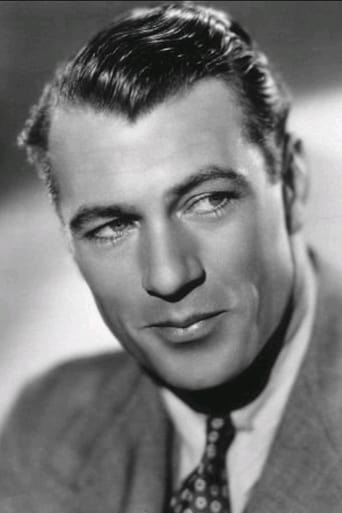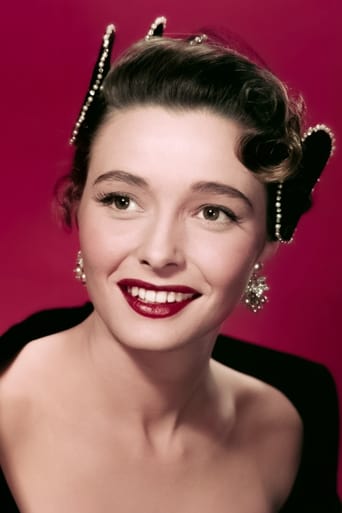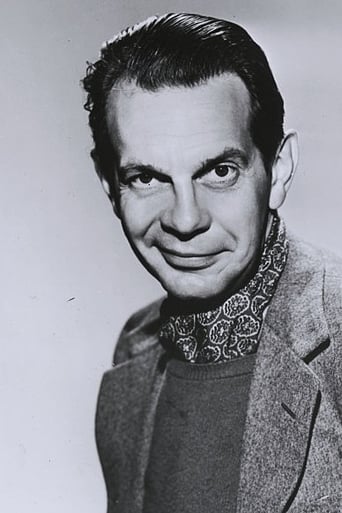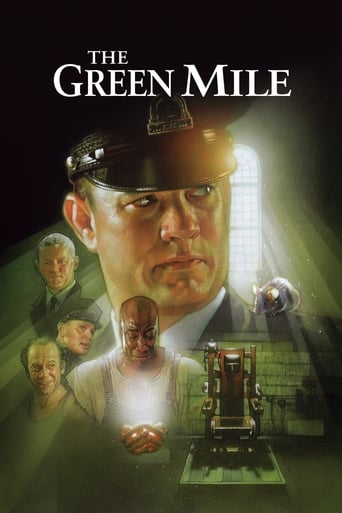The Fountainhead (1949)
An uncompromising, visionary architect struggles to maintain his integrity and individualism despite personal, professional and economic pressures to conform to popular standards.
Watch Trailer
Free Trial Channels
Cast


Similar titles


Reviews
Too many fans seem to be blown away
Excellent, a Must See
When a movie has you begging for it to end not even half way through it's pure crap. We've all seen this movie and this characters millions of times, nothing new in it. Don't waste your time.
Close shines in drama with strong language, adult themes.
I have long heard of the wisdom and cultural significance of Ayn Rand and "the Fountainhead." I finally had an opportunity and the time to watch it thanks to the library and "movie recycling" machine of TBS. The plot emphasizes the conflict between the Individual and Collective. It is pure ideological stupidity. What Ayn Rand describes as Individuality is egotism and stupidity. What she describes as the Collective is the symbiosis of the group for its mutual benefit. It is almost like she is fulfilling the dictum of Erik Hoffer in that the most fervent Communists become the most fervent anti-Communists. Except that she has no understanding of either Communism (which became an authoritarian attempt to replace the inherited royalty with criminals) versus Democracy where the leaders (and their wealth) are held accountable by the members of society. The acting sucks. The plot sucks. The sense of how and why people in society make economic decisions sucks. The value of seeing the movie is that it might be useful as a benchmark for ineptitude by anyone who advocates it or speaks highly of it.
What the Hell? Oh my God, what a God damned piece of crap this was. I mostly know Ayn Rand in a secondhand manner (I read Anthem in 8th grade but don't remember it being anything more than a 1984 retread), so I guess I'm kind of glad I finally got to experience her peculiar sense of morality (which should be easily identifiable to anyone with a shred of intelligence as evil). What particularly strikes me about this film (whose screenplay she did write, for the record) is not just that her morality is repugnant, but that she's an unbearably awful writer. First off, the dialogue that's spouted off doesn't sound like anything that could ever possibly come out of a human being's mouth. It's three steps beyond clunky and overly expository. Screw subtext, right? We're just gonna say everything on our minds, thank you very much. Second, I mean, how egotistical is Rand here? Clearly, at least part of the protagonist (Howard Roark, played by Gary Cooper) is autobiographical, you have to imagine, and we just think we're the hottest thing ever, don't we Ms. Rand? Oh, you're an individual and such a genius that the only reason anyone can ever disagree with you is because they think mediocrity is the way to go. And, finally, you all saw that he did it, right? He blew the Hell out of that building and surrendered right next to a plunger. It's a pretty open and shut case. I don't care how awesome your courtroom speech is - it's not, by the way - it has nothing to do with the case at hand and I'm surprised there wasn't one objection raised, especially given how much movie lawyers love to do so. And then there's some really dumb stuff with the Raymond Massey character too, but I was too flabbergasted by what had just happened in court to care about that. King Vidor, who was personally chosen by Rand, does what he can with the material, but it's utterably unsalvageable. Patricia Neal is quite attractive and it was nice seeing Cat People's Kent Smith in the film, but it's objectively garbage.
King Vidor outdid himself in fashioning Legendary Ayn Rand's philosophical novel for the screen. Generally misunderstood and under appreciated on its initial release, "The Fountainhead" has gained a great amount of respect as time goes on.Gary Cooper was challenged to the hilt in playing Howard Roarke, as was Patricia Neal in projecting Dominique Francon. Still, their work is constantly intriguing and fascinating.The way Rand saw the world and society is totally unique and courageously revealing. Given the usual level of philosophical insight of most American films, Rand--and Vidor--projected genuine daring in revealing clandestine societal truths.This is a film for the ages to be devoured and cherished.
The Fountainhead (1949) was released by Warner Bros. and is based on author Ayn Rand's literary masterpiece of the same name. The film stars film legend Gary Cooper as headstrong architect Howard Roark, Patricia Neal as idealist Dominique Francon, and Raymond Massey as newspaper magnate Gail Wynand. Directed by King Vidor and scored by Max Steiner, The Fountainhead is a beautiful example of Hollywood at its finest. It illustrates the cut-throat reality of real estate, architecture, and the public's insatiable appetite for tradition and otherwise mundane structures that populate their city and suburban spaces. The film begins by depicting Roark's undeserved expulsion from university. His dean proclaims him too unique and forward-thinking for the average man's traditional sensibilities and declares that Roark won't amount to much if he sticks to architecture as a profession. Roark's designs are ahead of their time: presenting sleek, unblemished lines and curves on both residential and commercial buildings that any other architect would stick Grecian accents on before calling it a day. The public and the community's builders cannot see past Roark's visionary designs to recognize the greatness and genius that undulates within each one.Howard Roark quickly becomes a starving artist because he refuses to adapt his designs to fit the mob's consensus. No one will hire him and anyone who does consider commissioning him for a job attempts to re-work his plans and incorporate more traditional accents and flourishes onto his buildings. Roark stands firm and refuses to alter his designs despite the fact this means that he is kissing his career as a successful architect goodbye. After having gone nearly two years without a single job, Roark is forced to accept a position working in a granite quarry, drilling into vast white sheets of marble to make a living. The work is laborious, tedious, and overwhelmingly exhausting, yet Roark remains stalwart and committed to performing his task to the best of his abilities. Gary Cooper excelled at playing righteous characters with strong, determined backbones and he is completely mesmerizing in the role of Howard Roark in The Fountainhead.Dominique Francon (Neal) is a woman determined not to become a slave to any man or object. She is flawed, certainly, but her hesitancy to belong to any one person rings true to today's feminists and gender equality seekers. She is just as headstrong and stubborn as Howard Roark is and it's only natural that the two characters are immediately drawn to each other after spotting one another at the granite quarry. The relationship between Howard and Dominique is sultry yet damaged, tender yet violent. Dominique is a spoiled socialite but her one redeeming quality is that she recognizes talent and stays true and loyal to it as she does when she is introduced to Roark's designs and work ethic. Once Roark gets back on his feet again and is commissioned to design a luxury high-rise apartment tower in the city, his modern designs are ridiculed not by the builder who sought Roark out specifically for his architectural prowess, but by the public and their destructive criticism is egged on by one of the city's most prominent newspapers, The Banner, which is owned by Gail Wynand (Massey).Lambasted by the public, the press, and his fellow architects, Roark perseveres with his modern designs and, once completed, the apartment tower is hailed as being a truly magnificent and original piece of architecture. His critics are silenced — temporarily — and his work quickly gains popularity.Unfortunately, any man's (or woman's) climb to the top of his or her profession is rarely an easy one. The way up is paved with rejection, ridicule, dangerous temptations, and ill will — all of this causes Howard Roark, no matter how strong of a constitution he has, to stumble. His pride and his unwillingness to change result in a total professional upheaval and Roark is forced to defend himself in court, risking not only his livelihood but his professional reputation as well. Still, through thick and thin, Dominique Francon remains a constant fixture in Roark's life, defending him to the last and sticking by him in his darkest hour. She has unwittingly become a slave — the very thing she was determined to avoid — and she discovers that there is nowhere she'd rather be than in the arms of Howard Roark.The Fountainhead is a film full of elitism, pride, vanity, and defeatist attitudes. It is also one of the most beautifully shot classic black and white films I've ever seen! Its cinematography and set design hearkens back to the German expressionist masterpiece Metropolis (1927) in which the world is broken into two social classes: the workers and the elite. The Fountainhead's cinematography has an almost film noir quality about it; plenty of smoke, hard edges and clean angles, shadowy spaces, and awesomely cropped longshots. Lightness and darkness fight for screen time here and the victor is a marvellous visual blend of hard and soft modern film celluloid.The only aspect of the film that I had a slight problem with was the evident lack of chemistry between the two romantic leads (Cooper and Neal). They each portrayed their characters well, but that special, essential spark and fire was missing from the finished version of the film. Perhaps the studio, producers, and director (King Vidor) were well aware of this issue because, though Cooper and Neal were two of the story's major characters, they didn't share a large amount of screen time. Rather, the majority of their scenes were filmed separately.http://juliekinnear.com/blogs/the-fountainhead-movie

